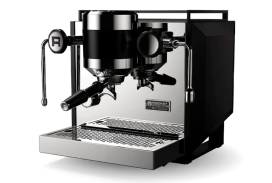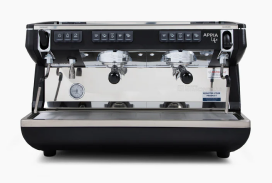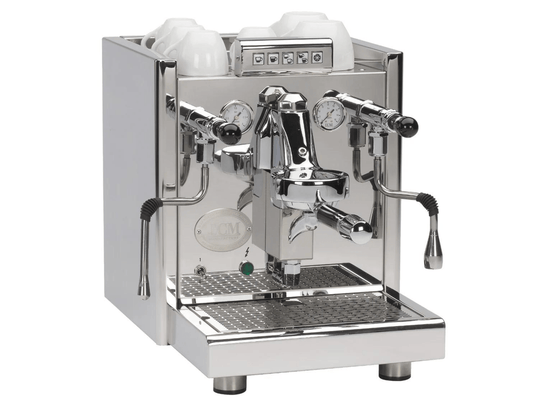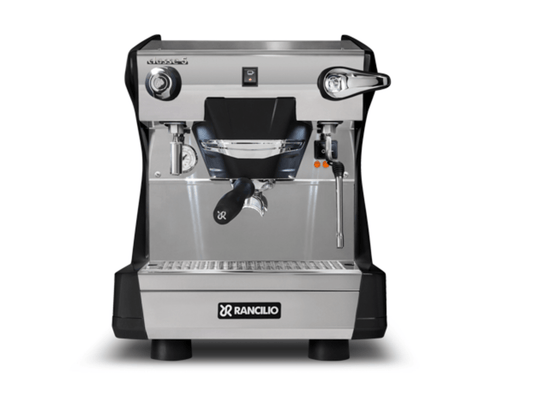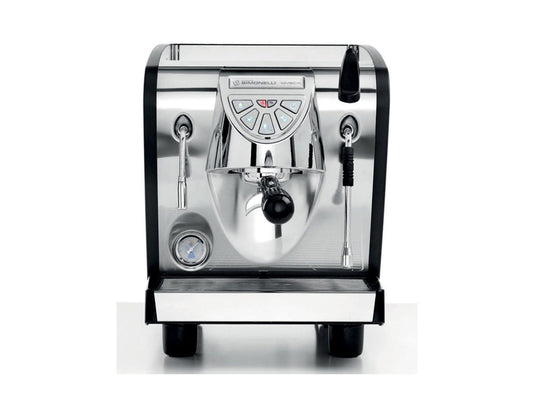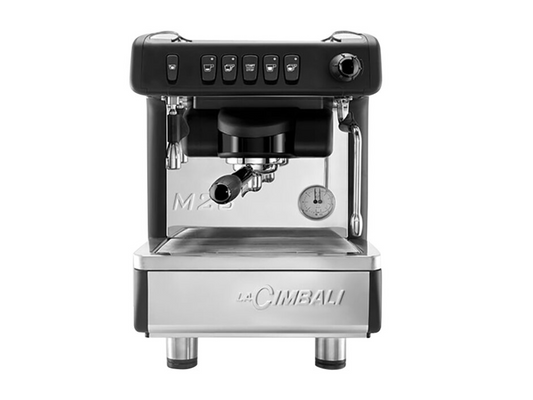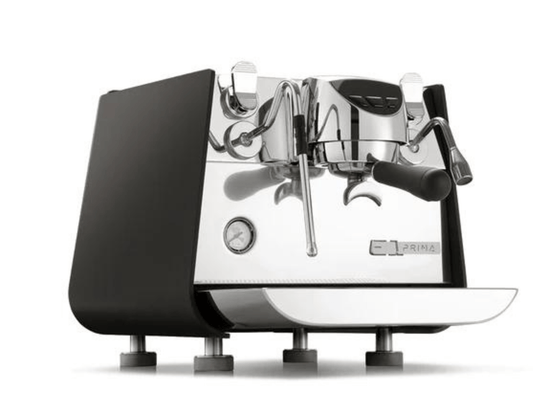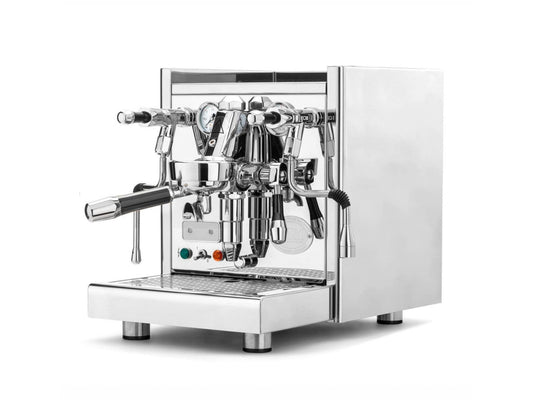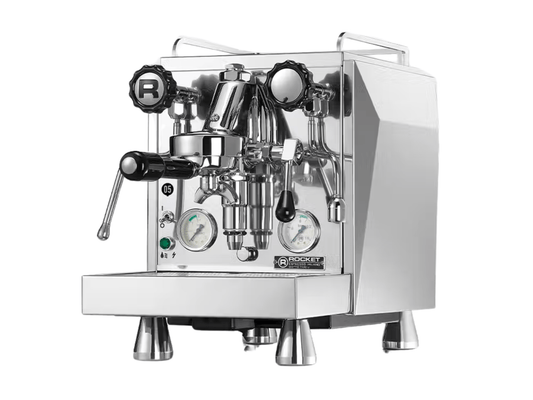SHOP BY machine TYPE
SHOP BY boiler type

Your wishlist is empty.
Explore Our Handpicked Coffee Equipment -
for Home | for Commercial
Get Monthly Offers & Discounts - 5% off Now
Sign Me Up
SHOP BY machine TYPE
SHOP BY boiler type

Espresso machines
SHOP BY machine TYPE
SHOP BY boiler type
Renewed Machines
SHOP BY machine TYPE
SHOP BY boiler type
Accessories
Best Bundles
Fast Shipping
Espresso machines
Accessories
Best Bundles
Fast Shipping
Espresso machines are the essential tools for crafting top-tier coffee and espresso, whether in your home kitchen or professional coffee establishment. Explore our curated selection of home espresso machines designed to cater to your specific preferences.
Consult with our team of knowledgeable technicians to ensure you find the perfect espresso machine for your home that makes professional-level coffee and tailored to your needs.
Lower-end espresso machines and those equipped with thermoblocks may require only five or ten minutes to reach operating temperature, yet they often compromise on materials, typically opting for aluminum construction. Conversely, higher-quality machines prioritize temperature stability, requiring more metal and consequently, a longer warm-up time to attain an optimal and consistent extraction temperature. Prosumer-grade machines, featuring components like e61 groupheads, can reach temperature within approximately 20 minutes, though for the best extraction results, it's advisable to wait around 35 minutes. Due to their extended warm-up times, many users opt to keep these machines powered on continuously or utilize outlet appliance timers, enabling automated activation and shutdown at predetermined intervals.
PID, short for Proportional Integral Derivative, may sound sophisticated, but it essentially refers to a computer-controlled system integrated into espresso machines. Its primary function is to maintain the machine's temperature stability while offering users the flexibility to adjust the set temperature according to their preferred brewing or steaming temperatures. Espresso machines equipped with PID technology typically come at a higher price point compared to those lacking this feature. Machines without PIDs often rely on pressure stats to regulate temperature, which can be effective depending on their quality, but lack the ease of adjustment and temperature display commonly found in PID-equipped machines.
The ideal espresso machines possess versatility, stability, and direct control over crucial variables such as time, temperature, volume, and pressure.
Regarding stability, espresso machines constructed with premium materials like brass or copper internal components and insulated boilers offer superior temperature stability compared to their less expensive counterparts. Temperature stability plays a pivotal role in achieving a consistently delightful espresso shot. A well-built group head is also essential for maintaining temperature stability. This component, which links the portafilter and dispenses water onto the coffee grounds, serves as the cornerstone of the espresso-making process, contributing significantly to the quality of the final brew. The E61 group head, renowned for its temperature stability, is a favored choice in both commercial and used machine options.
Versatility is another key characteristic to consider. An espresso machine should have the capability to regulate temperature, time, and volume. Additionally, a proficient espresso machine should be capable of reaching or surpassing 9 bars of pressure. While not obligatory, some espresso machines offer the option to manipulate pressure throughout the brewing process, a feature known as pressure profiling, typically found in more advanced models.
In summary, the finest espresso machines boast superior construction with top-tier materials, exhibit temperature stability, and offer versatility in function, encompassing control over temperature, time, volume, and even pressure settings.
I recommend starting your search with respected brands such as ECM home machines, Rocket home machines, Wega, and Sanremo.
Usually ships within 5 business days
Classe 5 S Compact
Rancilio
Usually ships within 2-3 business days
Musica
Nuova Simonelli
Usually ships within 2-3 business days
M26 BE 1 Group
La Cimbali
Usually ships within 2-3 business days
E1 Prima
Victoria Arduino
Usually ships within 2-3 business days
Usually ships within 2-3 business days
Giotto Cronometro V
Rocket Espresso
Usually ships within 2-3 business days
Mozzafiato Fast R
Rocket Espresso
Usually ships within 2-3 business days
Espresso machines are the essential tools for crafting top-tier coffee and espresso, whether in your home kitchen or professional coffee establishment. Explore our curated selection of home espresso machines designed to cater to your specific preferences.
Consult with our team of knowledgeable technicians to ensure you find the perfect espresso machine for your home that makes professional-level coffee and tailored to your needs.
Lower-end espresso machines and those equipped with thermoblocks may require only five or ten minutes to reach operating temperature, yet they often compromise on materials, typically opting for aluminum construction. Conversely, higher-quality machines prioritize temperature stability, requiring more metal and consequently, a longer warm-up time to attain an optimal and consistent extraction temperature. Prosumer-grade machines, featuring components like e61 groupheads, can reach temperature within approximately 20 minutes, though for the best extraction results, it's advisable to wait around 35 minutes. Due to their extended warm-up times, many users opt to keep these machines powered on continuously or utilize outlet appliance timers, enabling automated activation and shutdown at predetermined intervals.
PID, short for Proportional Integral Derivative, may sound sophisticated, but it essentially refers to a computer-controlled system integrated into espresso machines. Its primary function is to maintain the machine's temperature stability while offering users the flexibility to adjust the set temperature according to their preferred brewing or steaming temperatures. Espresso machines equipped with PID technology typically come at a higher price point compared to those lacking this feature. Machines without PIDs often rely on pressure stats to regulate temperature, which can be effective depending on their quality, but lack the ease of adjustment and temperature display commonly found in PID-equipped machines.
The ideal espresso machines possess versatility, stability, and direct control over crucial variables such as time, temperature, volume, and pressure.
Regarding stability, espresso machines constructed with premium materials like brass or copper internal components and insulated boilers offer superior temperature stability compared to their less expensive counterparts. Temperature stability plays a pivotal role in achieving a consistently delightful espresso shot. A well-built group head is also essential for maintaining temperature stability. This component, which links the portafilter and dispenses water onto the coffee grounds, serves as the cornerstone of the espresso-making process, contributing significantly to the quality of the final brew. The E61 group head, renowned for its temperature stability, is a favored choice in both commercial and used machine options.
Versatility is another key characteristic to consider. An espresso machine should have the capability to regulate temperature, time, and volume. Additionally, a proficient espresso machine should be capable of reaching or surpassing 9 bars of pressure. While not obligatory, some espresso machines offer the option to manipulate pressure throughout the brewing process, a feature known as pressure profiling, typically found in more advanced models.
In summary, the finest espresso machines boast superior construction with top-tier materials, exhibit temperature stability, and offer versatility in function, encompassing control over temperature, time, volume, and even pressure settings.
I recommend starting your search with respected brands such as ECM home machines, Rocket home machines, Wega, and Sanremo.
Sign up and get 5% off first order
Sign up for our newsletter to keep up with new products, events and 5% off your first order!
